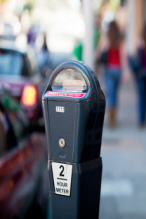Parking rights – easements or licences?
 Avril Thain considers how the courts have approached tenants' parking rights.
Avril Thain considers how the courts have approached tenants' parking rights.
Many leases contain provisions allowing tenants to park in designated spaces or a general right to park a number of vehicles within a car park. However, the exact legal status of such rights is not always clear. A series of cases have provided some guidance.
The Court of Appeal decision in Batchelor v Marlow [2003] raised doubts about the validity of such rights. The court decided that the right to park vehicles for 9.5 hours on working days was not an easement as the intensity of the use would deprive the landlord from any reasonable use of its land.
This caused difficulties for conveyancers and the Land Registry was required to consider whether such rights should amount to legal easements or contractual licences: an important distinction because easements are enforceable against successors in title whereas contractual licences are not automatically transferable.
The lack of clarity potentially put valuable parking rights at risk. However, the courts recognised the importance of parking spaces in Moncrieff v Jamieson [2007]. The House of Lords held that parking rights are capable of being a legal easement in Scotland. However, doubts remained about the status of such rights in England and Wales, particularly rights to park anywhere within a defined area. The Lords did not consider dedicated parking spaces and did not overrule Batchelor.
The case of Kettel v Bloomfold Ltd [2012] EWHC 1422 provided further clarification. Here a lease granted the tenant rights to use designated parking spaces. The court rejected the notion that the parking rights deprived the landlord of all reasonable use of the land as the landlord had common rights of way over the spaces, could change or repair the surface, could lay service media under the land, and even build in the air space above. Therefore, the court held that the tenants’ rights to park in designated spaces were, in principle, legal easements.
The Law Commission has recommended that rights to park should be recognised as legal easements but unless this recommendation is codified, cases will continue to be assessed on their own particular facts.
Avril Thain is a Solicitor in the Place Department at Essex Legal Services. She can be contacted on 01245 506715 or by This email address is being protected from spambots. You need JavaScript enabled to view it..